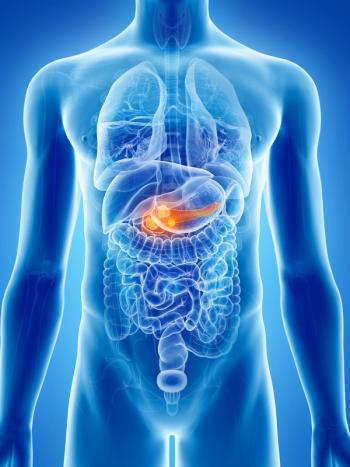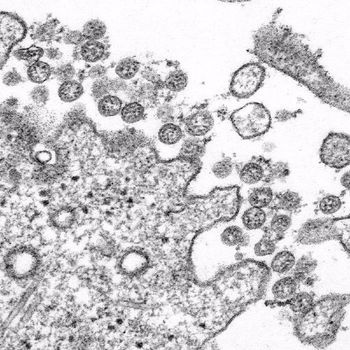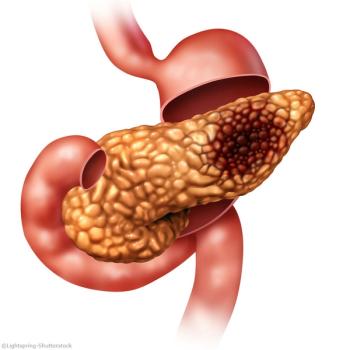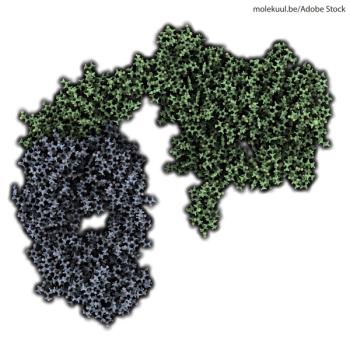
The MD Anderson expert discussed the main takeaway from the data published during the virtual AACR Annual Meeting, while looking forward to what comes next with these genetic drivers.

Your AI-Trained Oncology Knowledge Connection!


The MD Anderson expert discussed the main takeaway from the data published during the virtual AACR Annual Meeting, while looking forward to what comes next with these genetic drivers.

According to investigators, study findings could help guide treatment decisions and future research, as well as suggest new biomarkers for exploration.

The first-in-class inhibitor of connective tissue growth factor activity is being explored in combination with neoadjuvant gemcitabine and nab-paclitaxel as a potential method for downgrading unresectable locally advanced pancreatic cancer.

Per a planned interim superiority analysis conducted by an independent data monitoring committee, a trial of Eryaspace will continue without modification with final results anticipated later this year.

Sohal spoke with CancerNetwork® regarding recent clinical data investigating 2 common pancreatic cancer treatment regimens: FOLFIRINOX and gemcitabine/nab-paclitaxel.

A study found a number of factors associated with increased recurrence risk for patients with locally advanced pancreatic neuroendocrine tumors following surgical resection, including sex, lymph node metastases, and resection of other organs with tumor involvement.

The FDA placed a clinical hold on patient enrollment and dosing for the ongoing phase 1/2 dose-escalation clinical trial evaluating BPX-601 in patients with previously treated metastatic pancreatic or prostate cancer.

Study results suggested that maintenance olaparib (Lynparza) is potentially cost-effective compared with placebo for patients with metastatic pancreatic cancer and a germline BRCA mutation.

The latest installment of “Oncology Peer Review On-The-Go” dissects original research published in the journal ONCOLOGY regarding potential barriers to clinical trial enrollment for patients with pancreatic cancer.

This 20-year analysis suggested that weight loss surgery significantly decreases the risk of developing pancreatic cancer in individuals who are obese with diabetes.

This study found that adjuvant chemotherapy in patients with resected pancreatic cancer after treatment with neoadjuvant FOLFIRINOX was not associated with improved overall survival.

Researchers indicated that these results suggest the need for alternative approaches for risk stratification of patients with pancreatic cancer.

Researchers demonstrated that risk models that include established clinical, genetic, and circulating factors are better able to identify people at significantly higher than normal risk of pancreatic cancer over those using clinical factors alone.

Researchers reported on the incidence and outcomes of the SARS-CoV-2 infection, which has been linked to COVID-19, in patients with cancer who were treated at a tertiary cancer institution in Wuhan, China.

This study examined the association of disease progression and the deterioration of health-related quality of life for patients with metastatic breast, pancreatic, lung, and colorectal cancer.

An international systematic review and meta-analysis indicated that stereotactic body radiation therapy compared to conventionally fractioned radiation therapy with concurrent chemotherapy may offer a modest improvement in OS with a more favorable toxicity profile.

The medical oncologist from Memorial Sloan Kettering Cancer Center discussed challenges in treating patients with pancreatic center, and also the challenge of obtaining effective drugs in the clinical setting.

The FDA approved olaparib for the maintenance treatment of adult patients with germline BRCA-mutated metastatic pancreatic adenocarcinoma.

The PARP inhibitor was recommended as a first-line maintenance monotherapy for patients with germline BRCA-mutated metastatic pancreatic cancer.

Predictive models demonstrated the ability to anticipate adverse opioid-related outcomes among cancer survivors.

MCLA-128 showed radiological and clinical responses in patients with certain types of cancer who harbored neuregulin 1 gene fusions.

The worldwide incidence, and death toll, of colorectal and pancreatic cancers have sharply increased since 1990, according to the results of a new study.

Treatment with 9-ING-41 significantly increased pancreatic tumor cell killing when combined with chemotherapy in pre-clinical trials.

Researchers examine patterns of recurrence after resection of pancreatic ductal adenocarcinoma.

Researchers believe that previous findings about coffee consumption’s possible link to an increased risk of pancreatic cancer come from confounding factors that were not accounted for, such as smoking.